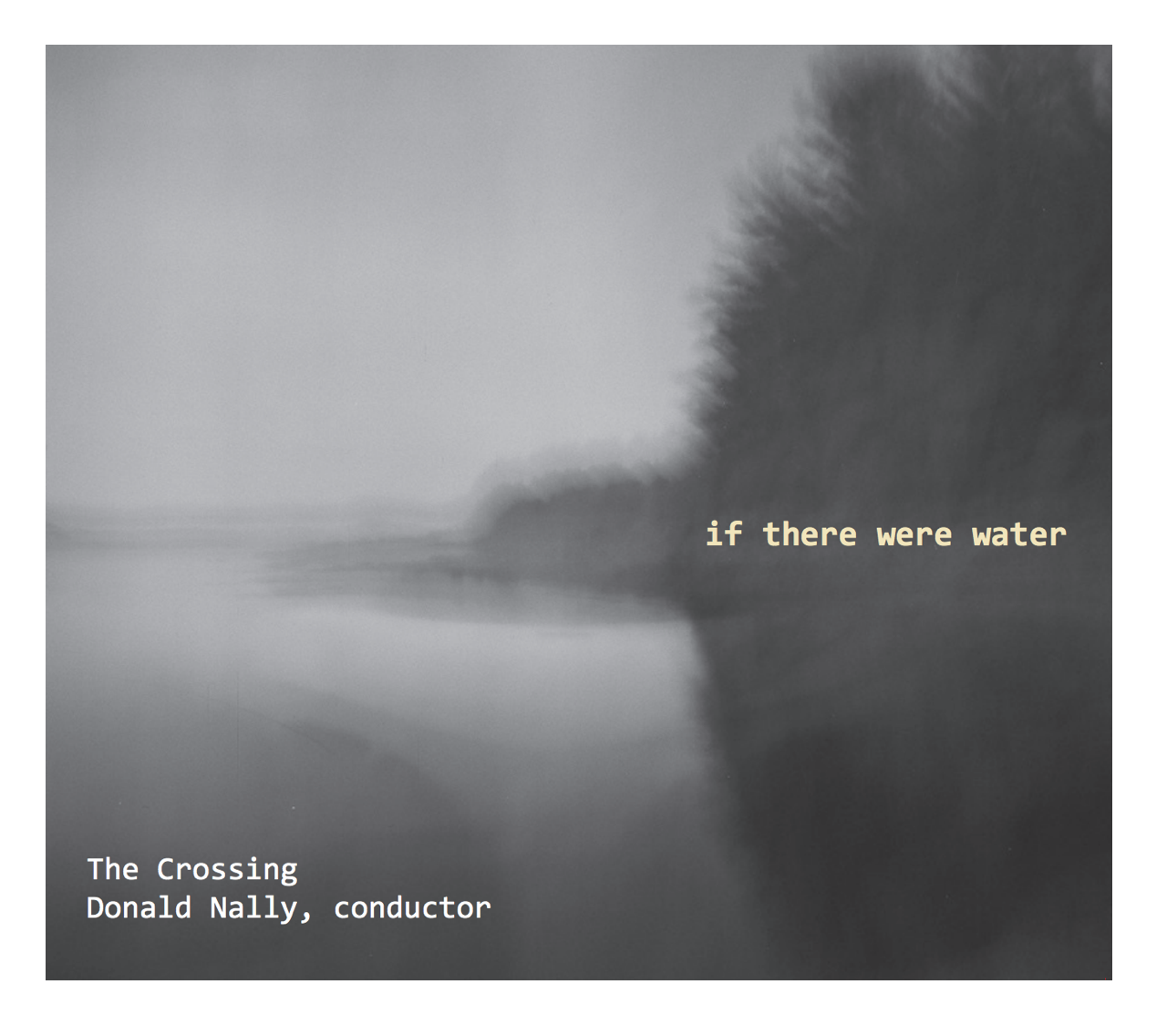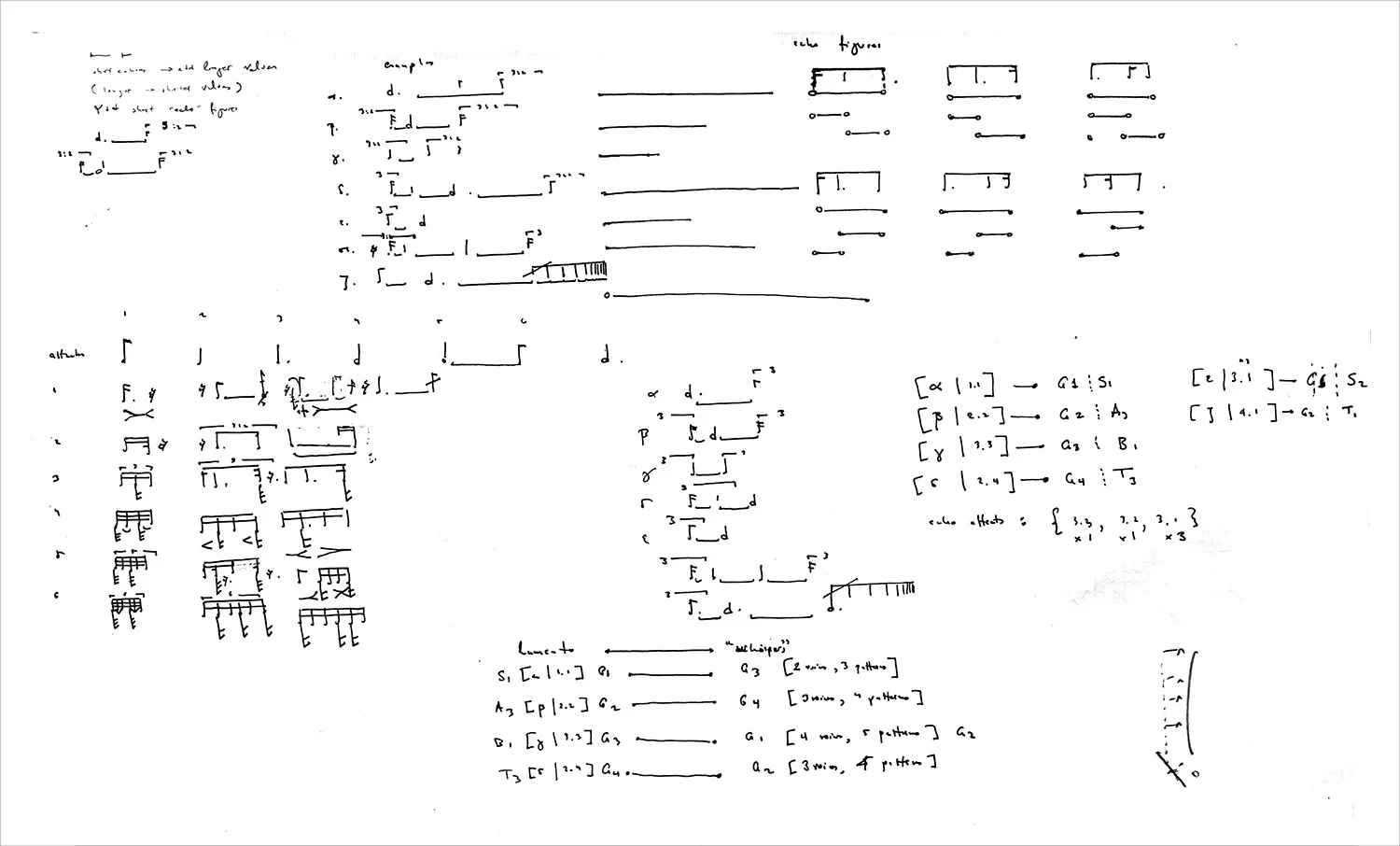If There Were Water
If There Were Water
A new recording of world premieres addressing a topic of our national discourse: diaspora. These two strikingly diverse, yet equally compelling unaccompanied compositions were commissioned for The Crossing’s Month of Moderns festival and premiered in June 2017.
Available for online streaming
"The vocal melodies at times conjure a calm pool as in the moon reflecting over “nothing but a body of unbroken water”, and yet there are other times where it sounds as if water is rushing down rocky terrain towards the sea..." - Caryn Havlik for New Sounds (WNYC)
In Crossings Cycle, Greek composer Stratis Minakakis creates a visceral musical response to the experience of observing Syrian refugees on the Isle of Lesbos. An elegy on things irretrievably lost, Crossings Cycle draws on Ancient Greek literature, Eliot’s The Waste Land, and microtonal tuning practices to convey a deeply resonant expression of the human condition. Sounds emerge and disappear from the shadows, often erupting as great cries or crashing waves that disintegrate again into murmurs.
un/bodying/s by composer Gregory W. Brown explores the history of the displaced populations of Quabbin, the Swift River Valley in Western Massachusetts, including the Native Americans moved by incoming Europeans, and then those Europeans relocated by the State when creating the massive reservoir that supplies Boston with water. Gregory and librettist Todd Hearon tell these stories from a variety of perspectives, including the history of the wildlife that, like the human refugees, have fled and since returned to this troubled land. The music undulates as if at times floating on water, or hidden under it, or soaring above it, reflecting up. Suddenly a New England hymn will emerge, then be replaced with a more distant, elusive texture, as the eternal search for Atlantis continues.
A note from composer Stratis Minakakis on one of the sources for Crossings Cycle, from which the album takes its name.
"July 2015, Island of Lesvos, Greece. We arrive at the island of Lesvos at the same time as the first massive influx of refugees from Syria lands on the Greek shores. Lesvos is the primary destination for the hordes of flimsy inflatable boats. Toddlers younger than my three-year-old daughter, newborns, and their exhausted parents, brave the unforgiving heat without food or water as they walk the 60 miles of mountainous terrain that separate our resort town of Methymna from the port of Mytilene. There, they will endure unspeakable hardships for days until a boat chartered by the Greek government, itself collapsing under the uncontrollable financial crisis, transfers them to the port of Pireaus. From there, most will walk for three weeks to reach someplace in Europe, hopefully Germany or Sweden.
As I am thinking about this piece, my wife suggests to reread The Waste Land. The verses 'if there were water and no rock' and 'who is the third who walks always beside you' seem painfully relevant.” --Stratis Minakakis
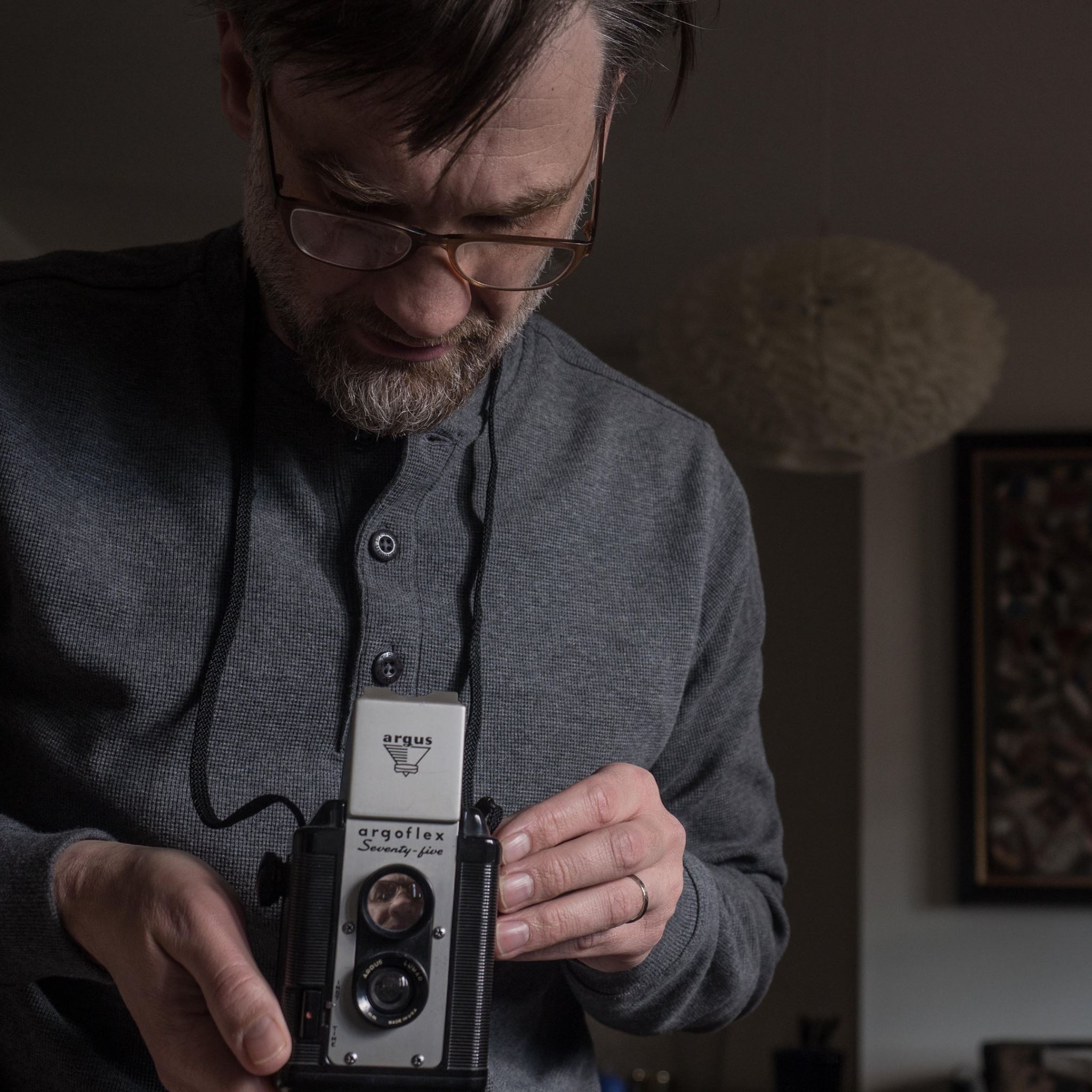
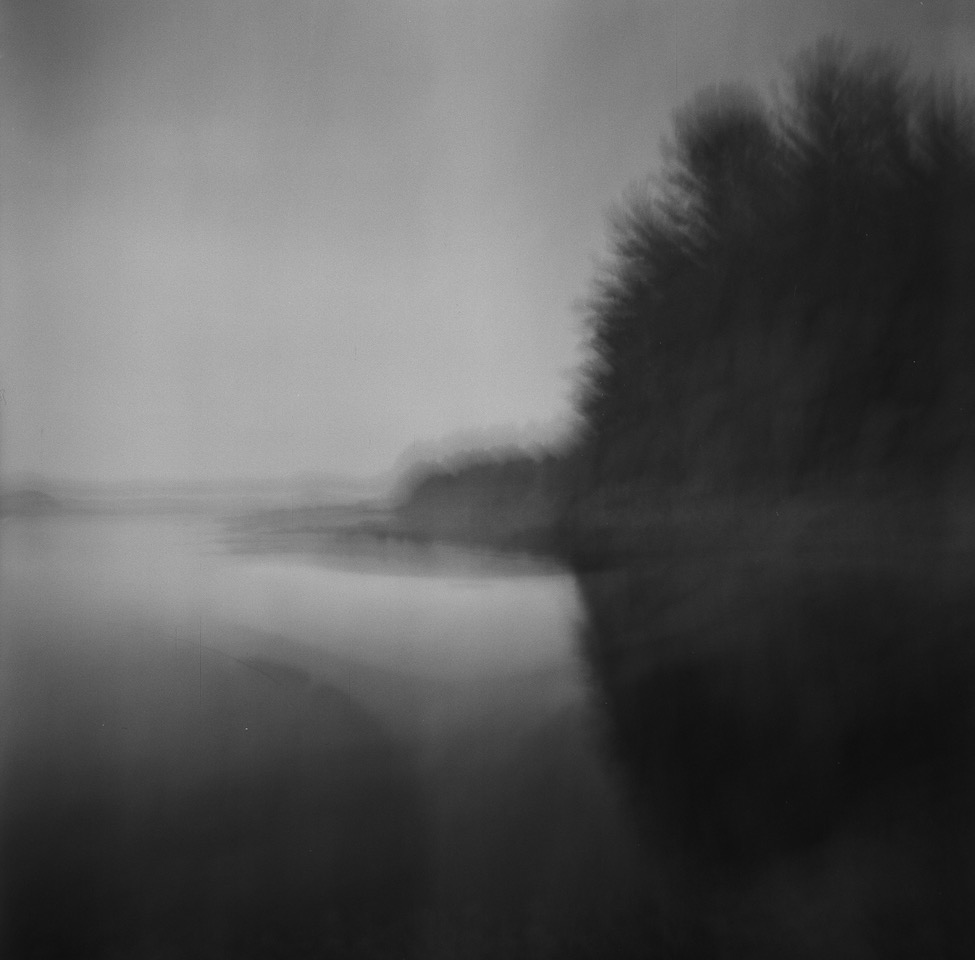
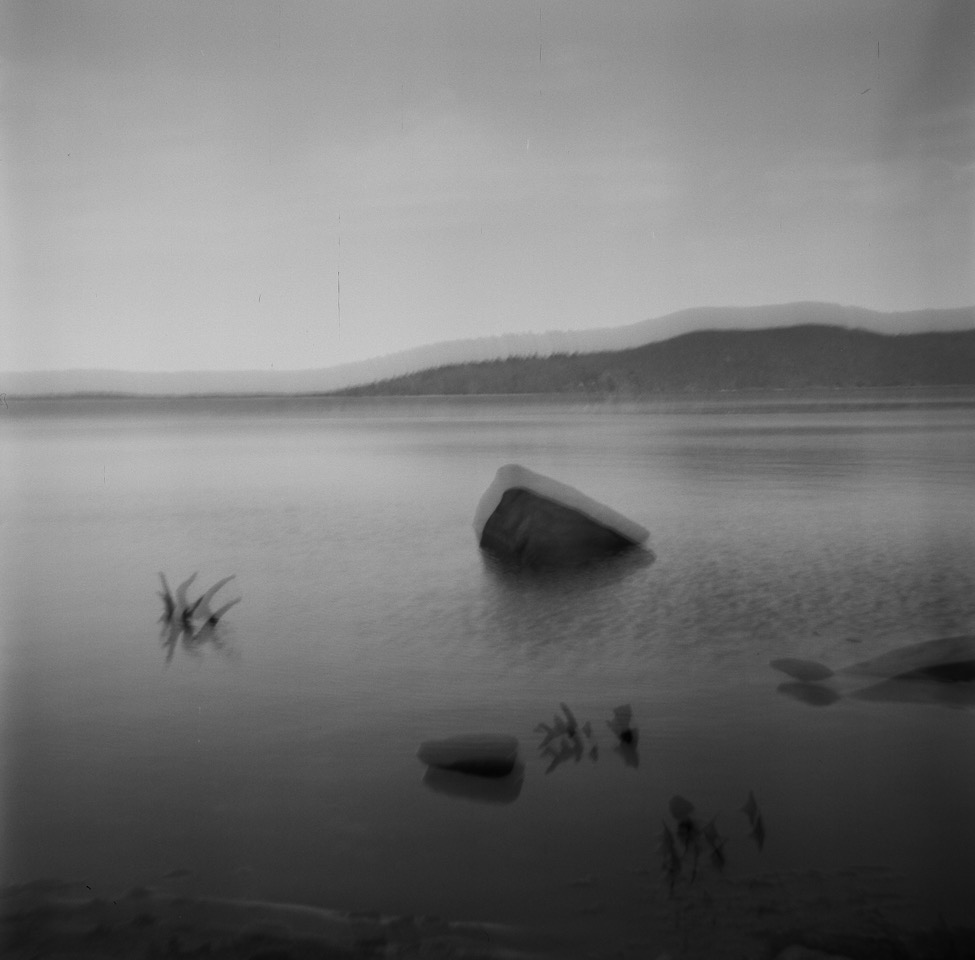
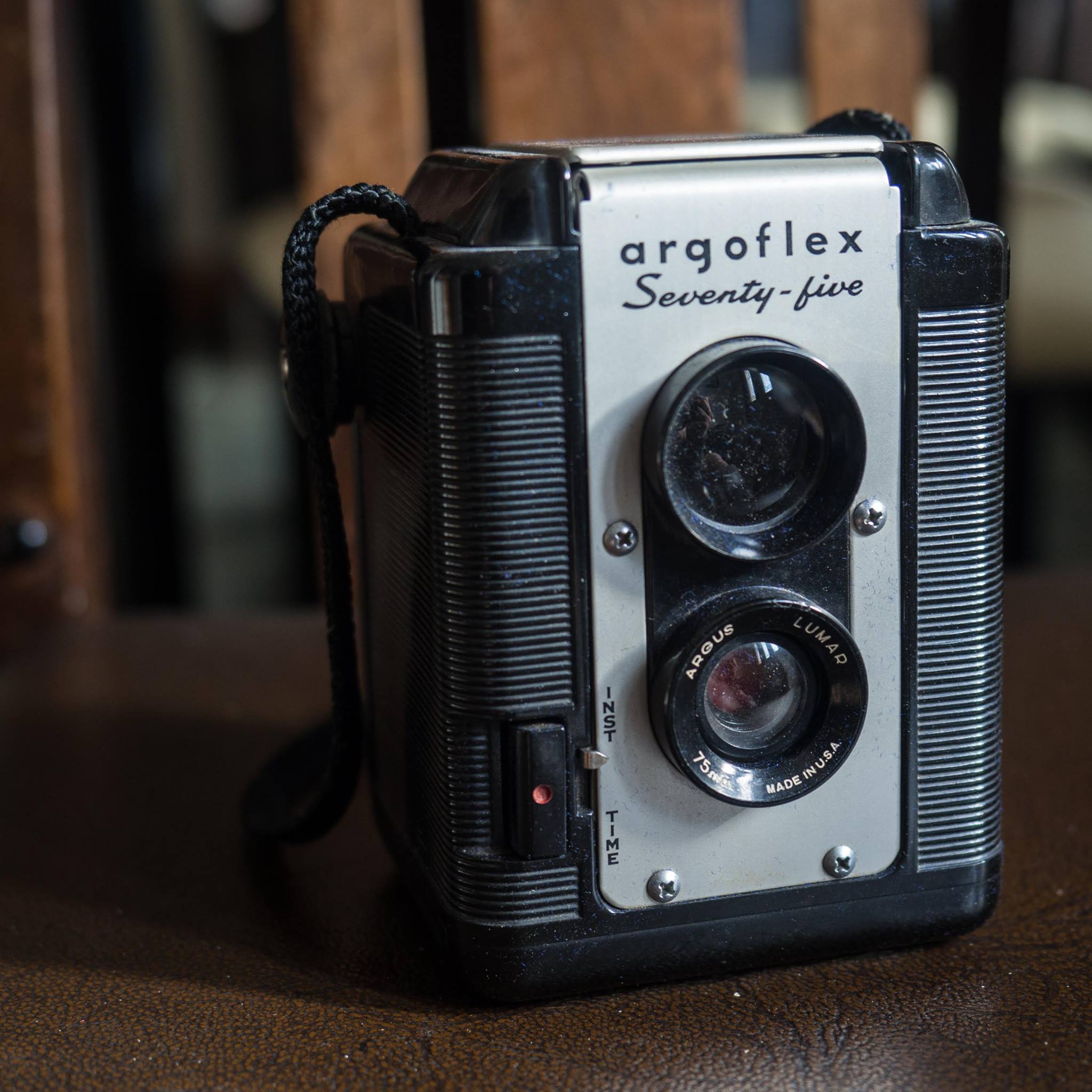
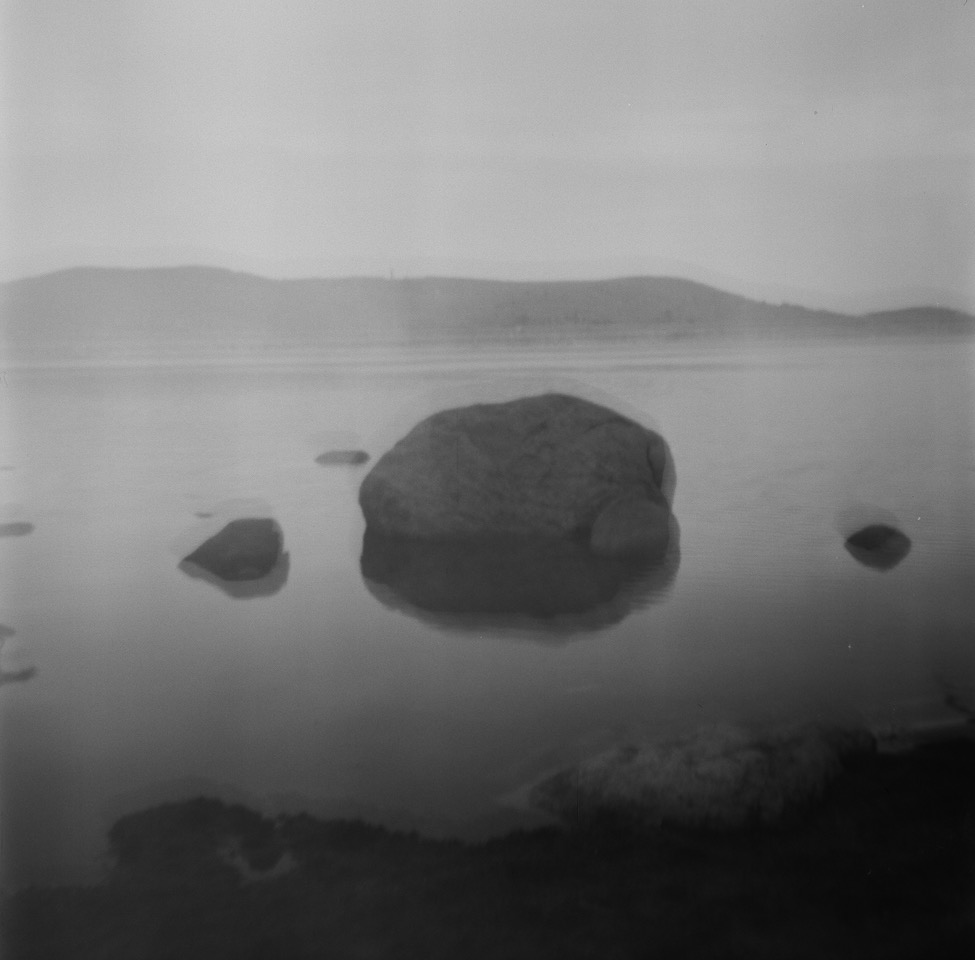
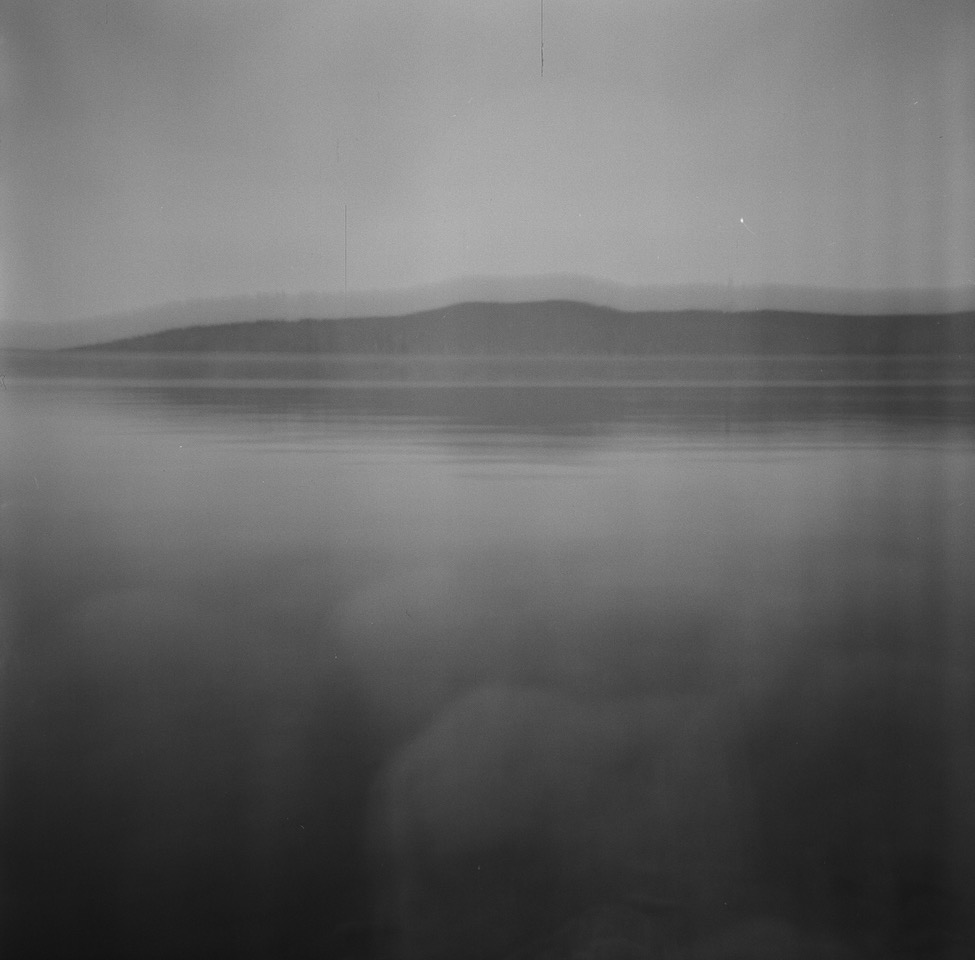
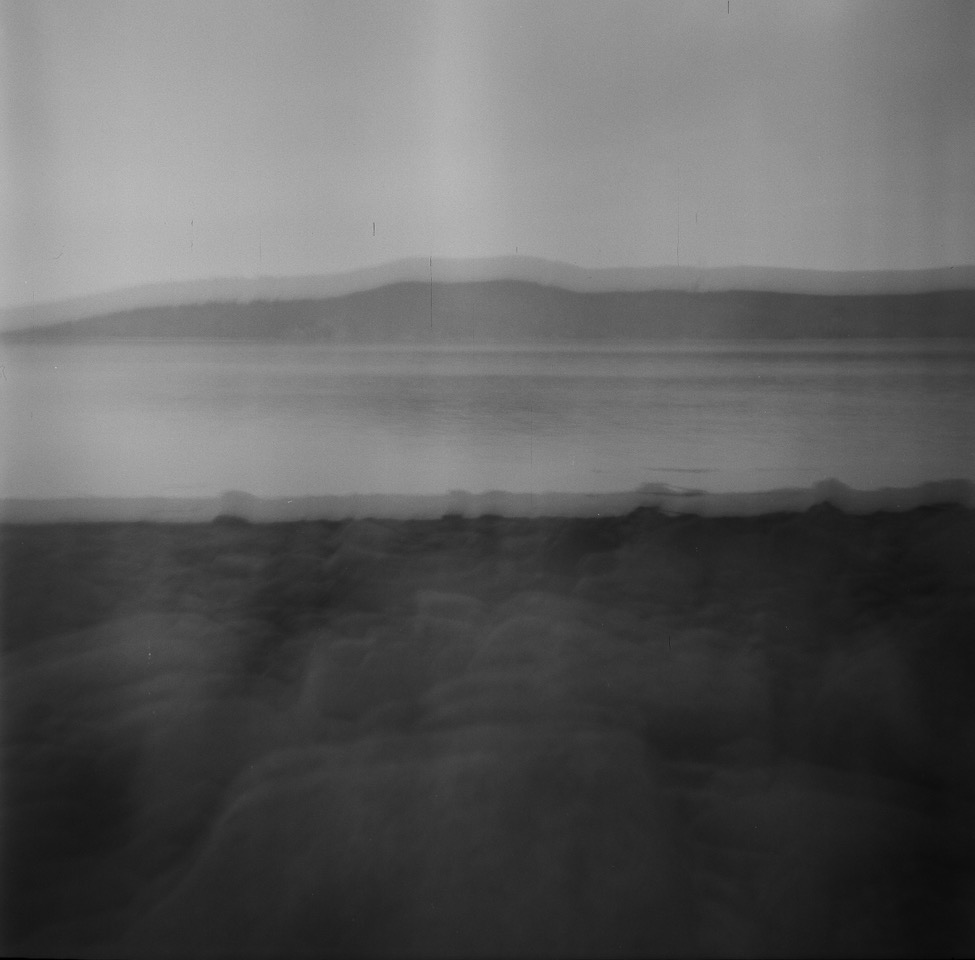
Our album art comes from photographs taken by composer Gregory W Brown, shot on a vintage camera at the Quabbin Reservoir:
“The photos were taken with a Argoflex 75, probably made in the 1950s. I bought the camera off of Craigslist for $25. It’s an odd little camera, almost a toy, really. There is one shutter speed (≈1/60s), one aperture (f/11), and no focusing capabilities. Everything 8 feet or farther away is (sort of) in focus. These photos were some of the first shots I took with this particular camera and were mostly just a test to see if it even worked. I didn’t bring a tripod with me, so almost every photo suffers from significant (and unanticipated) camera shake. I took the photos from one of my favorite spots in Quabbin, not far from my house. Walking in at Gate 5 brings you down an old road which dead ends into the reservoir. You can see the water through the arched canopy of trees from about a quarter mile up the road. When you reach the water side, the view opens up to the entire western side of Quabbin, all the way down to the dam to the south. The views pictured in the photographs are out over what was once the town of Enfield.” -- Gregory W. Brown
Listen to poet Todd Hearon read from “Valley of Lost Names”, one of the poems set by composer Gregory W Brown in un/bodying/s. Todd’s poetry and Greg's music explore the history of the displaced populations of the Quabbin Reservoir, the Swift River Valley in Western Massachusetts.

